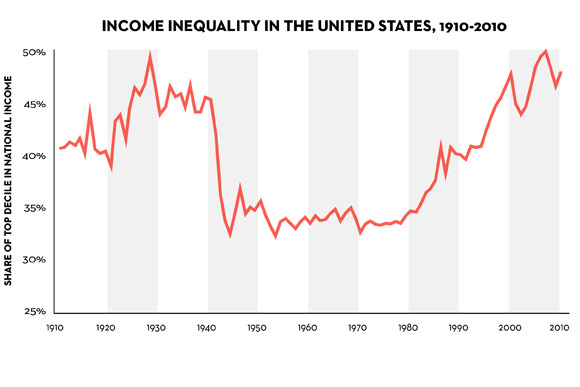As usual, danah boyd nails it:
Snapchat offers a different proposition. Everyone gets hung up on how the disappearance of images may (or may not) afford a new kind of privacy. Adults fret about how teens might be using this affordance to share inappropriate (read: sexy) pictures, projecting their own bad habits onto youth. But this is isn’t what makes Snapchat utterly intriguing. What makes Snapchat matter has to do with how it treats attention.
When someone sends you an image/video via Snapchat, they choose how long you get to view the image/video. The underlying message is simple: You’ve got 7 seconds. PAY ATTENTION. And when people do choose to open a Snap, they actually stop what they’re doing and look.
In a digital world where everyone’s flicking through headshots, images, and text without processing any of it, Snapchat asks you to stand still and pay attention to the gift that someone in your network just gave you. As a result, I watch teens choose not to open a Snap the moment they get it because they want to wait for the moment when they can appreciate whatever is behind that closed door. And when they do, I watch them tune out everything else and just concentrate on what’s in front of them. Rather than serving as yet-another distraction, Snapchat invites focus.
Furthermore, in an ecosystem where people “favorite” or “like” content that is inherently unlikeable just to acknowledge that they’ve consumed it, Snapchat simply notifies the creator when the receiver opens it up. This is such a subtle but beautiful way of embedding recognition into the system. Sometimes, a direct response is necessary. Sometimes, we need nothing more than a simple nod, a way of signaling acknowledgement. And that’s precisely why the small little “opened” note will bring a smile to someone’s face even if the recipient never said a word.
Snapchat is a reminder that constraints have a social purpose, that there is beauty in simplicity, and that the ephemeral is valuable. There aren’t many services out there that fundamentally question the default logic of social media and, for that, I think that we all need to pay attention to and acknowledge Snapchat’s moves in this ecosystem.
My idea of a perfect blog post. It’s insightful, thought-provoking and beautifully written.

